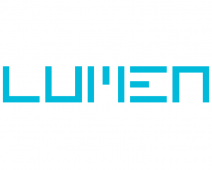Almost 75% of Consumers Will Increase or Maintain Seasonal Shopping Budget in 2020
by on 23rd Sep 2020 in News

Integral Ad Science (IAS), the global market leader in digital ad verification, today releases insights into online shopping behaviour, uncovering changing consumer patterns across Europe and the importance of digital advertising for brands during the seasonal period.
Seasonal spending shifts earlier in the year
Encouragingly, the majority of European consumers (72%) will maintain or increase their shopping budget this festive season, with only 9% of the remaining 28% saying they would significantly decrease their spend.
When it comes to what items consumers are spending their budgets on, the top three gift categories are similar across Western Europe, with books, music, and video (50%), apparel (43%), and health and beauty (41%) topping the charts. But as Europe heads into a recession, high-ticket gifts will be absent from the shopping list.
And seasonal shopping has already started. Promotions and discounts generated by events like Black Friday and Cyber Monday might make November a popular month for purchasing gifts, but it’s important to note that six in 10 consumers (59%) actually start their festive shopping before November. Therefore there is an opportunity for advertisers to capture consumer spend ahead of the peak, with those advertisers that implement digital campaigns now able to take advantage of fewer supply constraints, as well as less competition.
ecommerce is essential to the online seasonal shopping journey
Most of this year’s spend will go towards online shopping, with three-quarters (75%) of consumers in Europe anticipating that most of their festive shopping will be done digitally. This is because four-fifths (80%) of shoppers are concerned about buying in-store due to COVID-19, and are less likely to be on-the-move due to community lockdown orders.
The study found that, on average, European consumers use various sources to research gifts:
- 44% browse through ecommerce and retail sites
- 41% learn of brand offerings via search engines
- 26% watch video content on YouTube or similar platforms
The majority of consumers might purchase their gifts from ecommerce sites, but small and medium-sized businesses should also take advantage of the season, with a third of consumers willing to support independent businesses in the UK.
“With brands increasing their ecommerce offerings throughout the pandemic, advertisers need to understand how to optimise their digital strategies during peak buying times.” said Nick Morley, EMEA MD at Integral Ad Science (IAS). “It is promising to see seasonal spending still providing opportunities for brands this year. To seize those, it is critical brands understand all elements of the consumer journey and adapt advertising efforts accordingly – investing in optimising strategies, technologies, and focusing on contextually suitable placements to drive a much-needed boost to 2020 revenues.”
Brands must prioritise contextually relevant placements
With over three-fifths (67%) of survey respondents viewing digital advertising as helpful when finding products and promotions, having the strategies and tools in place to reach online customers is crucial. Almost two-fifths (37%) of survey respondents cite contextually relevant ads as helpful to their buying decisions.
Throughout the holiday season, brands need to ensure their ads are placed in safe, reputable environments, as the research findings uncovered:
- Ad fraud is a consistent threat, with fraudulent activity spiking in mid-December
- Advertisers will experience higher viewability rates from late September onward, which continue to rise throughout the holiday period
- Brands launching their seasonal campaigns during September and October will benefit from less supply constraints
The IAS Holiday buying in a year like no other study surveyed 526 internet users from across the European region including Germany, France, and the UK, to determine online consumer shopping behaviour throughout the holiday season. IAS used a questionnaire-based study, carried out between 28 August and 9 September 2020, to examine how respondent purchasing habits are evolving, using first-party data to look into how media quality will play a role in the increased advertising activity expected for the seasonal period.
Ad TechAd VerificationCovid-19ecommerceEurope








Follow ExchangeWire